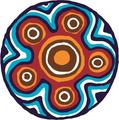Year 8 Term 3 Overviews

Humanities
This term in Humanities, students are exploring the world of Polynesian history and culture. Our unit focuses on continuity and change across Polynesia, and the incredible achievements of these societies. Students will examine key features of Polynesian geography and investigate the movement of people across the Pacific, including how natural resources influenced settlement and trade.We will also explore social structures, leadership, daily life, and cultural practices such as weaving, boat-building, and traditional performances, considering how these traditions have evolved over time and their impact on identity today. Students will learn about religion and spiritual beliefs, including concepts like mana and tapu, and examine significant achievements such as navigation, craftsmanship, and Lapita pottery. Our students will be creating maps, working with historical sources, participating in class discussions, and researching a number of islands.. We look forward to an exciting term of discovery, creativity, and cultural exploration!
Science
In Term 3, Year 8 Science students will explore how electrical circuits transfer energy and how household energy use is influenced by appliance choice, building design, and environmental factors. They will investigate, build, and test circuits using scientific methods and tools, and analyse real data to identify trends and relationships. Students will develop and test hypotheses, design fair investigations, and communicate findings using appropriate scientific vocabulary, models, and digital tools.
Alongside practical work, students will examine how scientific knowledge evolves with new evidence and how science interacts with society through ethical, economic, and environmental considerations. They will explore real-world energy issues, evaluate scientific claims, and understand how multidisciplinary perspectives contribute to scientific progress. This term will encourage critical thinking, problem-solving, and informed decision-making about energy use and sustainability.
Technologies
In Term 3, Year 8 students will explore the fundamentals of food science through an inquiry-based approach. They will investigate what plants need to grow, soil types, and ecosystems while preparing and maintaining a vegetable garden. Students will engage in hands-on activities such as soil testing, planting seedlings, and garden maintenance. In the latter half of the term, they will apply systems thinking to design solutions for real-world challenges, such as irrigation and pest management while the students are away during the term holiday. Through collaboration and experimentation, students will develop problem-solving skills while deepening their understanding of sustainable food production.
Maths
In term 3, students will learn topics across Space, Number/Measurement, and Probability. In Space, they will identify the conditions for congruence and similarity of triangles and explain the conditions for other sets of common shapes to be congruent or similar. They will establish properties of quadrilaterals using congruent triangles and angle properties, and solve related problems explaining reasoning. They will design and test algorithms, and describe how the algorithm works. They will also describe in different ways the position and location of three-dimensional objects in 3 dimensions.
In Number/Measurement, students will recognise irrational numbers in applied contexts, and recognise that irrational numbers cannot develop from the division of integer values by natural numbers. They will also use Pythagoras’ theorem to solve problems involving the side lengths of right-angled triangles.
Finally, in probability, students will recognise that complementary events have a combined probability of one; use this relationship to calculate probabilities in applied contexts. They will determine all possible outcome combinations for 2 events, using two-way tables, tree diagrams and Venn diagrams, and use these to determine probabilities of specific events in practical situations. They will also conduct repeated chance experiments and simulations to determine probabilities for compound events, and describe results.
English
In Term 3, students will explore the text A Long Walk to Water by Linda Sue Park. This novel is based on the real-life stories of two Sudanese children, Salva and Nya, who live in different time periods. Salva, a young boy in the 1980s, is displaced by the civil war and embarks on a dangerous journey in search of safety, eventually becoming a leader and advocate for access to clean water in Sudan. Nya, living in the 2000s, faces the daily challenge of walking long distances to collect water for her family, a task made more difficult by the scarcity of clean sources.
Throughout the unit, students will apply comprehension strategies to interpret and evaluate the text, citing evidence to support their personal viewpoints. They will examine how texts can draw on historical, social, and cultural contexts to reflect or challenge the values of individuals and groups.
At the end of the unit, students will critique the novel by analysing key elements such as character motivations, background information, mood and imagery, social issues, and the theme of social change. Their responses will include specific evidence from the text, discussion of its relevance, and an evaluation of the author's effectiveness in conveying the subject matter.
